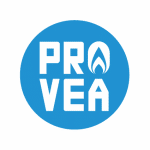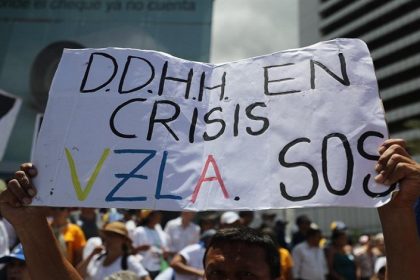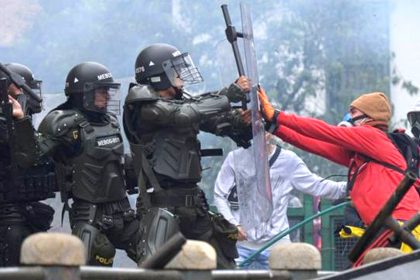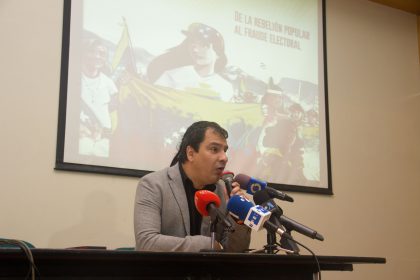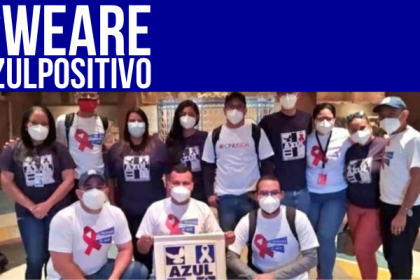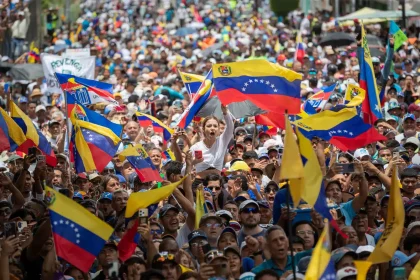The undersigned organizations consider it necessary to express our concerns in regards to the serious weaknesses of the Humanitarian Response Plan for Venezuela published last Wednesday, August 14, by the United Nations and prepared by the Office for the Coordination of Humanitarian Affairs (OCHA) in Caracas, under the leadership of the Humanitarian Coordinator (HC) in the Humanitarian Country Team (HCT). According to its formulation, this plan provides for a 6-month implementation period, from July to December 2019, with financial requirements of $223 million to meet a goal of 2.6 million people with humanitarian needs in 10 Priority Venezuelan states, through 98 projects submitted by 61 partners.
First, the plan is proposed as a continuation of the United Nations response initiated in October 2018 when it reacted belatedly to a humanitarian emergency that had already been alerted by civil society organizations and senior UN spokespersons since 2015. In this initial phase emergency funds were allocated mostly for the relief of the needs of 3.4 million refugees and migrants who had fled Venezuela massively between 2017 and 2018 (11% of the population); by 2019, this number reaches 4 million people. At the time, some UN agencies in Venezuela also expanded on their cooperation agreements, scaling up but with severe operating restrictions due to the government’s refusal to recognize the emergency and to provide access to official data. From this 2018 phase, the HRP highlights as achievements some endowments of which no evidence is offered to assess the extent to which
they can be considered as such achievements, nor to what extent they have contributed to reducing the impacts of the emergency.
Second, the plan is based on a baseline of at least 7 million people with humanitarian needs in Venezuela (25% of the population), whose estimate was made in March 2019. However, this figure presents considerable underestimations due to the lack of national data and given that secondary indicator sources and information from the field indicate profound impacts at the structural level, leaving millions of people deprived of essential goods and
services in all sectors (health, food, water, education, services basic, among others), making evident that the emergency has continued to increase humanitarian needs and that for August there are greater numbers of people affected than those estimated in March 2019. Although this baseline is transcendental for the development of a plan, to date the evaluation document from which it is extracted has not been made public in Venezuela, leaving
the population again without access to information on which the protection of their rights and the fulfillment of the
objectives of the essential humanitarian principles and norms depend.
Third, the HRP´s text admits that the plan is limited to cover only 37% of the 7 million people with humanitarian needs. Regarding these limitations, we must add that: a] it is not explained in what time frame or how the remaining 4.4 million people will be covered for new plans as of 2020, which require an urgent and effective response, given that having humanitarian needs means being deprived of one or more essential minimums that endanger life, integrity and human security; b] the plan was drawn up within a short timeframe for a period of just 6 months and was published a month and a half into this period, which limits its real possibilities of execution; and c] requires $223 million for its implementation which, in addition to being an extremely insufficient amount to meet the humanitarian needs of the 2.6 million people, are resources that must still be obtained among potential donors
during the short period of execution, compromising the viability of the plan.
Fourth, the plan contemplates that 73% of the required financing will be allocated to projects of the United Nations agencies in Venezuela and 27% to national and international civil society organizations. It is unknown how much of these resources is available and what will be the procedure to collect the remaining funds, leaving in uncertainty the civil society organizations which have done a hard job to participate in the coordinated humanitarian response
through project formulation.
In view of these weaknesses, we demand that the United Nations authorities to:
1. Inform about the results of the humanitarian response implemented since October 2018, beyond the amount of endowments, in order to examine how much that response has contributed to cover the existing humanitarian needs, by states, resources obtained and responsible agencies.
2. Publish the Humanitarian Needs Overview, prepared in March 2019, so that the population knows the dimension and the necessary scope of the response from the assessments carried out in populations and territories by sectors, as well as making public subsequent analysis of needs that imply adjustments to the Humanitarian Response Plan for the year 2020.
3. Reconsider the planning procedures to include all people with humanitarian needs and vulnerable groups, as well as the actual financing required within a time horizon that allows for assessing the gaps and progress of the response.
4. Include in all plans an analysis of concerns about human rights violations in all sectors affected by the emergency and context restrictions that prevent compliance with protection mandates and traditional humanitarian principles.
5. Communicate to civil society organizations clearly and transparently, in the respective instances of coordination, the conditions to obtain the funds required for projects of which a large number of people at risk await response. See the Humanitarian Response Plan in: https://reliefweb.int/report/venezuela-bolivarian-republic/plan-derespuesta-humanitaria-venezuela-julio-2019-diciembre
1. A.C. Médicos Unidos de Venezuela
2. A.C. María Estrella de la Mañana
3. Acceso a la Justicia
4. Acción Campesina
5. Acción Ciudadana Contra el SIDA – ACCSI
6. Acción Solidaria
7. ACOANA
8. Aconvida
9. Alianza Venezolana por la Salud
10. Amigos Trasplantados de Venezuela
11. Asociación Civil Impulso Vital Aragua ACIVA
12. Asociación Civil Mujeres en Línea
13. Asociación Civil Movimiento Vinotinto
14. Asociación de Derechos Humanos Amigos de Margarita – ADHAM
15. Asociación Venezolana para la Hemofilia
16. Aula Abierta
17. AVESA. Asociación Venezolana para una Educación Sexual Alternativa
18. Caleidoscopio Humano
19. Cátedra de DDHH de UCLA
20. Cátedra de la Paz de la Universidad de los Andes
21. CDH-UCAB
22. CECODAP
23. Cendif-Unimet
24. Centro de Acción y Defensa Por los Derechos Humanos – CADEF
25. Centro de Animación Juvenil
26. Centro de Derechos Humanos de la Universidad Metropolitana
27. Centro de Formación Para la Democracia – CFD
28. Centro de Justicia y Paz – Cepaz
29. Ciclovías Maracaibo
30. Ciudadanía con Compromiso A.C
31. Civilis Derechos Humanos
32. Clima21 – Ambiente y Derechos Humanos
33. Creemos Alianza Ciudadana Carabobo
34. Codevida
35. Comisión para los Derechos Humanos del Estado Zulia – Codhez
36. Comisión para los Derechos Humanos y la Ciudadanía – Codehciu
37. Comisión Nacional de DDHH de la Federación del Colegio de Abogados de Venezuela del estado Lara
38. Comisión Nacional de DDHH de la Federación de colegios de abogados de Venezuela del estado Táchira
39. Comisión Nacional de Derechos Humanos de la Facultad de Ciencias Jurídicas y Políticas de la
Universidad del Zulia
40. Comisión de DDHH de la Federación de Colegios de Abogados de Venezuela del estado Mérida
41. Comisión de DDHH de la Federación de colegios de abogados de Venezuela del estado Monagas
42. Comité de derechos humanos de la guajira
43. Comité Popular de DDHH de Coche
44. Comunidad en Movimiento A.C
45. Conciencia Ciudadana A.C
46. Control Ciudadano para la Seguridad, la Defensa y la Fuerza Armada Nacional
47. Convite A.C.
48. Defensa en Acción
49. Defiende Venezuela
50. Democracia emprendedora
51. ECCOS de Paz
52. EDEPA A.C.
53. Epikeia Observatorio Universitario de Derechos Humanos
54. Equipo Voluntario de Ayuda Humanitaria EVAH
55. Espacio Humanitario
56. Espacio Público
57. EXCUBITUS Derechos Humanos en Educación
58. Federación Colegios de Bioanalistas de Venezuela
59. Federación Nacional de Sociedades de Padres y Representantes -Fenasopadres60. Funcamama
61. FUNDACION AGROINLACA
62. Fundacion Aguaclara
63. Fundación Ayudate
64. Fundación Emprendedores Solidarios
65. Fundación Incide
66. Fundación La Tortuga
67. Fundación Mavid
68. Fundación Papagayo
69. Fundación Pro Bono Venezuela, ProVene
70. Fundación prodefensa del derecho a la educación y la niñez
71. Fundación Rehabilitarte
72. Fundación Red Venezolana de Hombres Positivos RVH+
73. Gran Familia de la Salud
74. Gente & Ciudad Corp
75. Gobiernatec
76. Grupo de trabajo sobre Asuntos Indígenas – GTAI
77. Instituto Mead de Venezuela A.C
78. Instituto Venezolano de Estudios Políticos y Sociales-INVESP
79. Justicia y Paz OP VENEZUELA
80. Labo Ciudadano
81. Laboratorio de Paz
82. Madres y Padres por los Niños en Venezuela – Mapani Venezuela
83. Monitor Social A.C. (Nueva Esparta)
84. Movimiento Ciudadano Dale Letra
85. Movimiento SOMOS
86. Mulier
87. MUV Capítulo LARA
88. Observatorio de Derechos Humanos de la Universidad de Los Andes
89. Observatorio Global de Comunicación y Democracia – OGCD
90. Observatorio Venezolano de la Salud
91. ONG DEMOCRACIA EMPRENDEDORA
92. Organización StopVIH
93. Padres Organizados de Venezuela
94. Prepara Familia
95. Promoción Educación y Defensa en DDHH – PROMEDEHUM
96. Provea
97. Proyecta Ciudadanía A.C
98. PSICODEHU
99. Red de Activistas Ciudadanos – REDAC Venezuela
100. Red de Activistas Ciudadanos – REDAC Internacional
101. Red por los Derechos Humanos de Niños, Niñas y Adolescentes – REDHNNA
102. RVG+ Red Venezolana de Gente Positiva
103. Red Naranja
104. RedOrgBaruta
105. Revista SIC del Centro Gumilla
106. Sinergia, Red Venezolana de Organizaciones de Sociedad Civil
107. Sociedad Hominis Iura (SOHI)
108. SOS PACIENTES RENALES
109. Superatec AC
110. Transparencia Venezuela
111. Un Mundo Sin Mordaza
112. Una Ventana a la Libertad
113. Unión Afirmativa de Venezuela
114. Unión Vecinal para la Participación Ciudadana A.C
115. Venezolanos en Acción
116. Voto Joven
117. 100% Estrógeno
